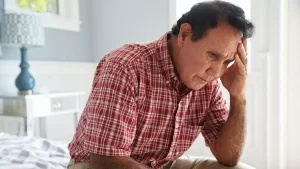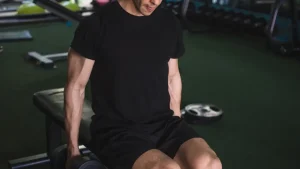Key Takeaway Table:
| Eye Injury | Cause | Treatment | When to See a Doctor |
| Minor scratches or abrasions | Fingernails, tree branches | Rinse with clean water for 15-20 minutes | Not usually, unless irritation persists |
| Foreign objects in the eye | Grit, wood, sand, metal | Rinse with clean water for 15-20 minutes. Don’t rub! | If object is lodged or irritation persists |
| Chemical burns | Household cleaning products, workplace chemicals, acid attacks | Immediately flush the eye with clean water for at least 20 minutes. Wear gloves if possible. | Immediately |
| Serious eye infections | Bacteria, viruses, fungi | Hygiene to prevent infections is vital. See your GP for treatment. | If you experience pain, redness, or vision changes |
| Black eyes (Shiner) | Blow to the eye or surrounding area | Usually no treatment needed, but a cold compress can reduce swelling. | If there is bleeding inside the eye, vision problems, or if you suspect a concussion |
| Cuts to the eyelid | Sharp objects, falls | Apply gentle pressure with a clean compress and cover the eye with a paper cup. Seek medical attention immediately. | Always |
What are Eye Injuries?

Our eyes are delicate organs that play a vital role in our everyday lives. Unfortunately, they’re also susceptible to a whole whack of injuries. An eye injury can be anything from a minor scratch to a serious puncture wound. While some eye injuries can be treated at home, others require immediate medical attention to prevent permanent vision loss.
The Most Common Causes of Eye Injuries
There are many different ways to injure your eye, but some of the most common causes include:
- Blows to the eye: This can happen during contact sports, accidents, or even from getting hit with a rogue object like a stray cricket ball.
- Scratches: These can be caused by fingernails, makeup brushes, twigs, or other sharp objects.
- Foreign objects: Getting grit, sand, wood, or metal in your eye can be uncomfortable and scratch the cornea.
- Chemicals: Household cleaning products, workplace chemicals, and even swimming pool chlorine can all irritate and damage the eye.
- Ultraviolet (UV) radiation: Spending too much time in the sun without proper eye protection can cause sunburn to the cornea (photokeratitis).
- Wearing contact lenses: If you don’t look after your contact lenses properly, you can increase your risk of getting an eye infection.
How to Treat Eye Injuries
The treatment for an eye injury will depend on the severity of the injury. Here’s a general guide:
- Minor scratches or abrasions: These can usually be treated at home by rinsing the eye with clean water for 15-20 minutes. You can use a clean eye bath or a sterile syringe to gently flush the eye. Avoid rubbing your eye, as this can make the scratch worse.
- Foreign objects in the eye: If you get something stuck in your eye, the first thing to do is try not to rub it. This can push the object further into the eye and cause more damage. Try flushing the eye with clean water for 15-20 minutes. If the object doesn’t come out, don’t try to remove it yourself. See a doctor straight away.
- Chemical burns: This is a serious medical emergency. Immediately flush the eye with clean water for at least 20 minutes. If possible, wear gloves to protect your hands from the chemicals. Seek medical attention immediately, even if the pain seems to subside.
When to See a Doctor
It’s important to see a doctor straight away if you experience any of the following symptoms after an eye injury:
- Severe pain
- Blurred vision
- Loss of vision
- Bleeding in the eye
- A foreign object that won’t come out
- Sensitivity to light
- Pus coming from the eye
- A black eye that doesn’t improve after a few days
How to Prevent Eye Injuries
There are a number of things you can do to reduce your risk of getting an eye injury:
- Wear protective eyewear: When playing sports, doing DIY, or working in a hazardous environment, always wear safety glasses or goggles.
- Be careful with chemicals: Always wear safety goggles when handling chemicals, and be sure to follow the instructions on the label carefully.
- Mind your makeup: Don’t share eye makeup with others, and replace your mascara every three months to prevent the spread of bacteria.
- Don’t rub your eyes: This can irritate the delicate surface of the eye and increase your risk of infection. If you get something in your eye, try flushing it out with clean water or artificial tears.
- Take care of your contact lenses: Always follow the instructions for cleaning and storing your contact lenses. Don’t wear them for longer than recommended, and replace them regularly.
- Protect your eyes from the sun:Wear sunglasses that block out UVA and UVB rays. A wide-brimmed hat can also provide additional protection.
- Have regular eye checkups: This is important for maintaining good eye health and detecting any potential problems early on.
Living with an Eye Injury
If you’ve suffered a serious eye injury, it’s important to be patient with your recovery. Depending on the severity of the injury, it may take some time for your vision to return to normal. There are also steps you can take to manage any vision loss you may experience, such as using low vision aids or learning new ways to perform everyday tasks.
Conclusion: Keeping Your Eyes Safe
Our eyes are precious, so it’s important to take steps to protect them from injury. By following the tips in this article, you can reduce your risk of getting an eye injury and keep your peepers healthy for years to come.
Remember, if you experience any concerning symptoms after an eye injury, don’t hesitate to see a doctor. Early diagnosis and treatment can help prevent permanent vision loss.






